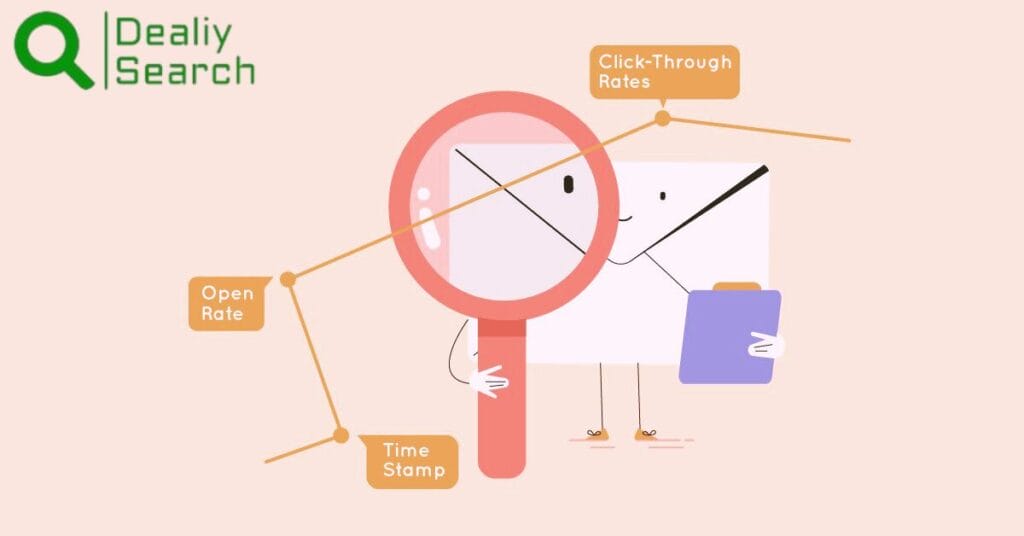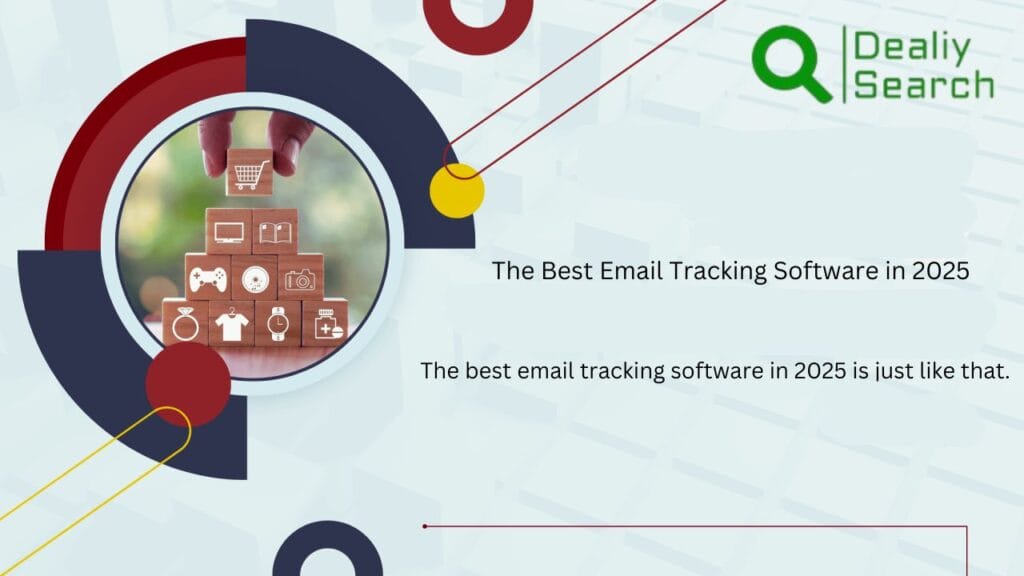Email Tracking How It Works and Why It Matters in Digital Communication
In today’s digital world, email is a cornerstone of communication, but how do you know if your messages are being read? That’s where email tracking comes in. It’s a powerful tool that allows senders to gain valuable insights into recipient behavior, from open rates and click-throughs to location data.
For businesses, this translates to understanding campaign effectiveness, personalizing marketing efforts, and optimizing content for better engagement. and For individuals, it can shed light on how your emails are received and help you refine your communication strategies. This article will delve into the intricacies of email tracking, exploring its mechanisms, benefits, and potential drawbacks, empowering you to make informed decisions about its use and understand its impact on the larger email ecosystem.

What Is Email Tracking
Email tracking is a method used to monitor whether an email sent to a recipient has been opened and read. It typically involves inserting a small, invisible image (a tracking pixel) or a special link within the email. When the recipient opens the email or clicks the link, the sender receives a notification.
Contemporary Examples and Data:
Marketing Campaigns:
Companies like Mailchimp and HubSpot use email tracking to measure the effectiveness of their marketing campaigns. They provide metrics such as open rates, click-through rates, and conversion rates.
Sales Outreach:
Tools like Salesloft and Outreach enable sales teams to track email engagement, helping them optimize follow-ups and measure prospect interest.
Recruitment Processes:
Platforms such as Greenhouse and Lever leverage email tracking to monitor candidate engagement with job offers or interview scheduling emails.
Recent Statistics:
- According to Litmus (2023), the average email open rate across industries is approximately 21.33%.
- A Gartner report (2023) states that businesses using email tracking see a 20% increase in overall engagement by tailoring follow-up actions based on tracked data.
These examples and data illustrate how email tracking is widely used across various industries to enhance communication strategies and achieve business objectives.
How Does Email Tracking Work?
Email tracking works by placing a small, invisible tracking pixel or a unique link inside an email. When the recipient opens the email or clicks on a link, the sender gets a notification with details like the time, location, and device used. This helps businesses and individuals know if their emails are being read and engaged with. Companies use email tracking for marketing, customer support, and follow-ups to improve communication. Many tools like Mailchimp, HubSpot, and Gmail extensions offer tracking features. However, users should be aware that some email services block tracking pixels to protect privacy.
The Benefits of Email Tracking and Email click Tracking
Have you ever clicked a link in an email and wondered what happens next? Often, it’s email click tracking in action! Imagine each link in the email has a tiny, invisible counter attached. When you click, your click is secretly recorded before you’re taken to the website. It’s like a secret tally mark for each link. The company sending the email can then see which links were clicked the most. This helps them understand what you and other people are interested in. Think of it like a teacher taking a poll – they learn what subjects the class likes best!
This “click tracking” is really useful for companies. First, it helps them see if their emails are working. If lots of people click the links, they know their emails are interesting! Second, it helps them learn what you like. If you click on links about video games, they might send you more emails about new games or special deals. It’s like they’re trying to send you emails you’ll actually want to read, so you don’t get bored with stuff you don’t care about. Third, it helps them improve their emails. If no one clicks a certain link, they know maybe that’s not something people are interested in, and they can try something different next time. So, even though it might seem a little sneaky, email click tracking helps companies send you better, more interesting emails!
The Best Email Tracking Software in 2025

Imagine having a special tool that works like a detective for your emails! The best email tracking software in 2025 is just like that. It helps you know when someone opens your email or clicks on a link you included. This can be really handy, especially if you’re trying to organize something fun, like a party. You can see who has read your invitation and who might need a little reminder. Businesses find this tool super helpful too. They send out tons of emails about cool new games or special sales, and they want to know if people are interested. By tracking who opens their emails and clicks on more information, they can learn what people like and send even better emails next time.
But it’s not just for companies; it helps everyone improve their communication. If someone realizes their emails aren’t being opened often, they can try making them more interesting. It’s like learning how to write better stories in school! Even though this tool gives you great information, it’s important to use it wisely and always respect people’s privacy. With email tracking, staying connected and making sure your messages are seen is easier than ever, kind of like having a trusty sidekick for your digital life!
What are the Disadvantages of Email Tracking?
Email tracking, while offering marketing insights, presents several disadvantages. Primarily, it raises privacy concerns as recipients are often unaware their email interactions (opens, clicks, location) are being monitored, potentially damaging trust. Technically, tracking’s reliability is declining; changes like Apple’s Mail Privacy Protection, which preloads images, inflate open rates, creating false positives and inaccurate data. This renders open rates, a key metric, increasingly unreliable for measuring engagement.
Furthermore, aggressive tracking or perceived privacy violations can negatively impact brand perception, making recipients feel surveilled. Finally, implementing robust tracking often requires investment, whether through subscriptions to email marketing platforms or development costs for custom solutions. Therefore, while offering potential benefits, email tracking’s ethical implications, declining accuracy, and associated costs must be carefully considered.
Differences between email tracking and logging
Email tracking and email logging might sound the same, but they serve different purposes. Email tracking helps you know when someone opens your email or clicks a link inside it. It works by placing a tiny invisible image (tracking pixel) or a special link inside the email. When the email is opened or the link is clicked, the sender gets a notification. Businesses and professionals use email tracking to see if people are reading their emails, especially for marketing, customer service, and sales follow-ups.
On the other hand, email logging keeps a record of all emails sent and received, including who sent the email, the subject, the date, and whether it was delivered successfully. However, email logging does not track if the email was opened or read. It is mainly used for keeping records, troubleshooting email issues, and ensuring messages are delivered properly. For example, companies use email logging to keep track of important conversations and make sure they don’t lose any emails.
In short, email tracking focuses on engagement, helping senders know if their emails are read, while email logging keeps a history of all emails without tracking interactions. Both are useful but serve different needs.
Frequently Asked Question
1. What is email tracking?
Email tracking is a way to see if someone has opened your email or clicked on a link inside it. It uses a tiny invisible image (called a tracking pixel) or a special link. When the email is opened, the sender gets a notification that tells them when and where it was read.
2. Why do people use email tracking?
People use email tracking to know if their emails are being read. Businesses use it to see if customers are interested in their emails, while teachers or professionals might use it to check if students or coworkers have opened important messages.
3. Can I track all emails I send?
No, not all emails can be tracked. Some email services block tracking pixels to protect privacy, so the sender might not always know if an email was opened.
4. How can I tell if someone is tracking my emails?
Some email services, like Gmail or Outlook, have security features that block tracking. You can also use browser extensions or settings to prevent tracking pixels from working.
5. Is email tracking safe?
Yes, but it depends on how it’s used. Companies should respect privacy, and users should know when their emails are being tracked. Many businesses use it responsibly to improve communication and customer service.
Conclusion
Email tracking enhances communication by letting senders know when their messages are read, improving follow-ups and engagement. While it offers convenience, it must be used responsibly to respect privacy and build trust. As technology evolves, balancing efficiency with transparency will be key. In the end, email tracking is not just about tracking emails—it’s about making communication smarter, stronger, and more meaningful.






